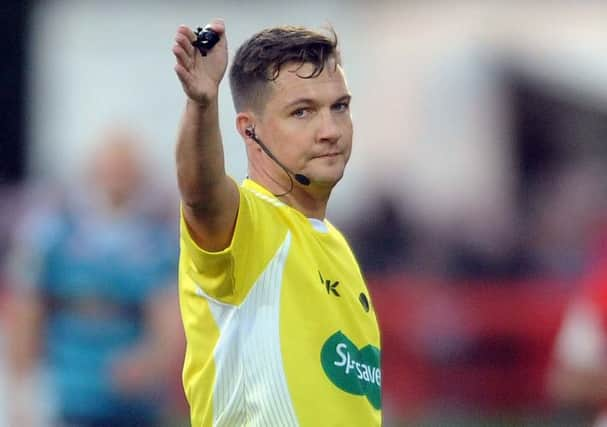Dave Craven: It's no laughing matter when it comes to video replays


One of them is to disband with the ‘let’ call entirely, a move he felt would quicken up the game immeasurably, reducing the actual playing-time forced on players while not actually taking anything away from it as a spectacle.
It seemed blissfully simple and obvious although, 14 years on from the book’s first edition, the authorities have still never deemed to take on the little nugget of advice.
Advertisement
Hide AdAdvertisement
Hide AdThere are, of course, those who do not want tennis to be altered too significantly and, the ‘let’ call is seen as a traditional rule that must stay.
Nevertheless, it did get me thinking about other blissfully simple and obvious ways of maybe improving rugby league.
Here’s an idea – let’s get rid of the utterly redundant on-field call from referees when sending decisions to the video referee.
Wouldn’t that be a genius thought? As it stands, the official is meant to give his view on whether he thinks a player has scored before sending it “upstairs” for a colleague to formally award or disallow the effort.
Advertisement
Hide AdAdvertisement
Hide AdBut, if the video referee is to overturn the on-field call, he has to be 100 per cent certain his colleague is wrong. Often, he cannot gain such conclusive proof and he sticks with the on-field call, which makes the whole process pointless.
If the on-field referee is not sure of what has happened – he can’t be if he’s asked the video official for help – then why should he have to give his opinion? And that’s what it is – just an opinion.
As one colleague suggested the other night after another bizarre decision in the semi-final between Warrington Wolves and St Helens, wouldn’t it be great if he said “I haven’t a clue, but rules make me guess!”
Of course, once referees never had to make any such call before going ‘upstairs’ and it was left solely to the video referee to make the judgement but, after a raft of incorrect decisions, it was felt allowing the on-field man first stab would help improve success rates.
Advertisement
Hide AdAdvertisement
Hide AdClearly, there are still major problems if the debacle of Thursday night is anything to go by.
Saints centre Dominique Peyroux had a late try ruled out when video official Joe Cobb agreed with on-field referee Ben Thaler’s decision that he did not touch down – even though replays showed otherwise.
Thaler also failed to use the video referee when Tom Lineham scored – but dropped the ball over the line – in Warrington’s 18-10 success.
Saints coach Keiron Cunningham, with his side’s season over in an instant, was clearly aggrieved.
Advertisement
Hide AdAdvertisement
Hide Ad“They were game-changing calls and this consistently happens every single week when you look at video refereeing decisions,” he said.
When a side’s title aspirations are ended in such a manner it is bad enough but, when after such an enthralling, exciting and classic game, all anyone is talking about is referees, it just shows what a negative impact the problem can have.
So many people on social media, against their better nature, seemed forced to use the term “laughing stock” when referencing rugby league.
However, while officials are getting things so badly wrong at such critical times, such episodes will continue. Maybe the answer is to get rid of video referees completely and let the on-field officials make the decisions.
Advertisement
Hide AdAdvertisement
Hide AdThey always will get some wrong, of course, but we will always know that it is pure, simple human error from one person and one person alone.
That, surely, is better than knowing a conglomerate of officials, with countless video images to pour over, hamstrung by futile rules, combine in a complete charade to still get it incorrect.
If that continues, and in such massive games, too, then the laughing stock reference will, unfortunately, become not just commonplace but absolutely ingrained in rugby league terminology.